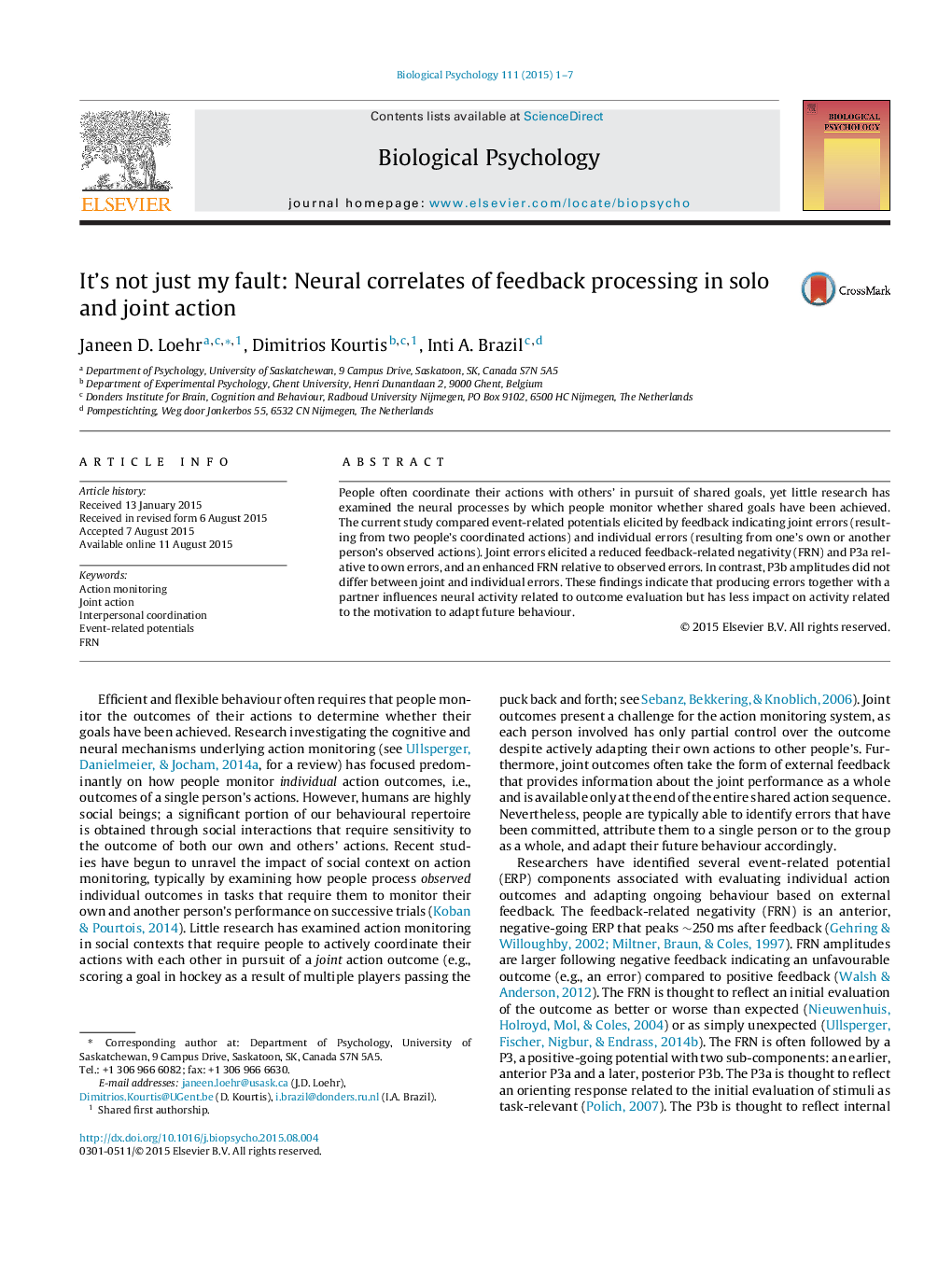| Article ID | Journal | Published Year | Pages | File Type |
|---|---|---|---|---|
| 7278525 | Biological Psychology | 2015 | 7 Pages |
Abstract
People often coordinate their actions with others' in pursuit of shared goals, yet little research has examined the neural processes by which people monitor whether shared goals have been achieved. The current study compared event-related potentials elicited by feedback indicating joint errors (resulting from two people's coordinated actions) and individual errors (resulting from one's own or another person's observed actions). Joint errors elicited a reduced feedback-related negativity (FRN) and P3a relative to own errors, and an enhanced FRN relative to observed errors. In contrast, P3b amplitudes did not differ between joint and individual errors. These findings indicate that producing errors together with a partner influences neural activity related to outcome evaluation but has less impact on activity related to the motivation to adapt future behaviour.
Related Topics
Life Sciences
Neuroscience
Behavioral Neuroscience
Authors
Janeen D. Loehr, Dimitrios Kourtis, Inti A. Brazil,
